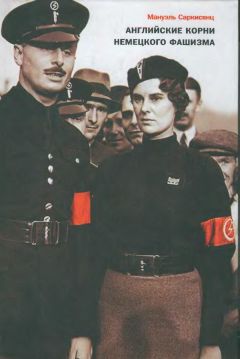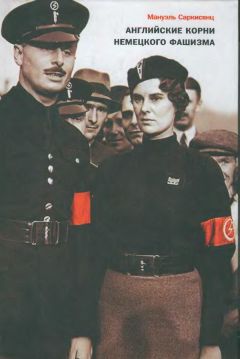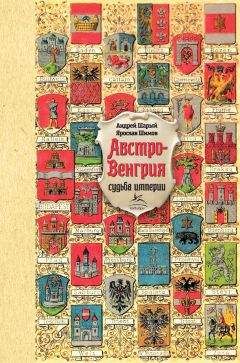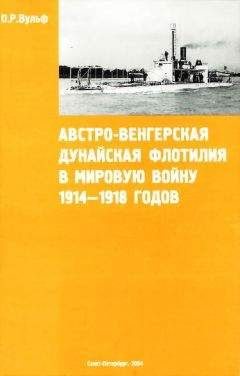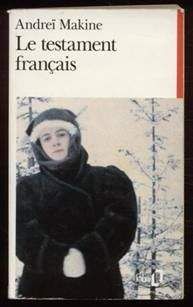1251
John Baker-White, Dover-Nurnberg (London, 1937), p. 28, 31f, 70f, 72, 74.
Linehan, p. 45; Graham Wooton, The official History of the British Legion (London, 1956), p. 195, in: Richard Griffiths (as reference 791), p. 130.
Пока Англия воевала с Германией, британская разведка отзывалась о Зеппе Дитрихе как о старом гангстере, вылезшем из пивной (1944), когда же началась холодная война, Зепп Дитрих вдруг стал "человеком, который вел себя с честью и проявил преданность" (по выражению британского военного историка Мессенджера) (прим. автора).
D. Aigner, Das Ringen um England, S. 83; vgl. G. Ward Price, Extra Special Correspondent (1957), p. 222 und Hans Thost, Als Nationalsozialist in England (Munchen, 1939), S. 200, 309f.
Домвилл Арчибальд Комптон Уиннингтон (1884—1959).
Теодор Эйке (1892—1943) — один из создателей и руководителей нацистской системы концлагерей, создатель и командир дивизии СС «Мертвая голова».
Sir Barry Domville, By and Large (London, 1936), p. 236f, 240, 243, 245ff.
Вейн-Темпест-Стюарт Чарлз Стюарт Генри, седьмой маркиз Лондондерри (1878—1949) — англ. полит, и гос. деятель.
Marquess Londonderry, Ourselves and Germany (Harmondsworth, 1938), p. 97,157, 73; Middlesmas & Barnes, Stanley Baldwin (London, 1969), p. 805 in: Maurice Cowling, The impact of Hitler. British politics and policies 1933—1940 (Chicago, 1977), p. 127; Richard Griffiths, Fellow Travellers of the Right British enthusiasts for Nazi Germany (Oxford, 1983), p. 140f.
Aigner, Ringen um England, S. 56.
Margaret George, Warped Vision, pp. 223f; cf. Walter Darre, Neuadel aus Blut und Boden (Munchen, 1930), S. 133, 218f and G. E. Watson, The English Ideology (London, 1976), p. 201 as well as R. Symonds, Oxford and Empire, p. 11; R. Shepherd, p. 18; Drennan, Der britische Faschismus, S. 78f.
Cannadine, p. 697.
A. K. Chesterton, Mosley. Geschichte und Programm des britischen Faschismus (Leipzig, 1937), S. 78f; cf. Wilson Knight, Christ and Nietzsche (London, 1948), p. 209, quoted in David Baker, The Ideology of Obsession. A. K. Chesterton and British Fascism (London, 1996), p. 102.
R. Shepherd, p. 274; Speech of Herbert Morrison of 22. February, 1938: Parliamentary Debates. House of Commons, Vol. CCCXXXll, Col. 303f, qouted in B. J. Wendt, Munchen, 1938. England zwischen Hitler und Preussen (Frankfurt, 1965), S. 113, 143; Simon Haxey, England's Money Lords (1939).
R. Symonds, Oxford and Empire (London, 1991), p. lOf; cf. Keith Feiling, Life of Neville Chamberlain (London, 1947), p. 406; Robert Shepherd, pp. 106,176f, 205f, 245f.
Adolf Hitler, Monologe im Fuhrerhauptquartier, S. 193: 10. Januar 1942.
Thomas Carlyle, "The Nigger Question" (1849): Carlyle, Miscellaneous Essays, Vol. IV (London, 1899), p. 374, 381.
H. Thost, Als Nationalsozialist in England (Munchen, 1939), S. 323f, 240f; Hermann Rauschning. Die Revolution des Nihilismus, Kulisse und Wirklichkeit im Dritten Reich (Zurich, 1938), S. 372.
Ibid., S. 382f; Rauschning, Gesprache mit Hitler (Zurich, 1940), S. 44; Раушнинг. С. 47.
Allen Greenberger, British Image of India, p. 60.
K. Tidreck, Empire and English Character, p. 246; cf. Scott Newton, Profits of Peace. Political economy of Anglo-German Appeasement (Oxford, 1996), pp. 168, 152; Ivonne Kirkpatrick, The Inner Circle. Memoirs (London, 1959), p. 97; Wahrhold Drascher, Die Vorherrschaft der Weissen Rasse (Berlin, 1936), S. 373, 222.
Ibid., S. 153, 375, 379, 221, 343, 345.
Dr. Johann von Leers, Die Deutschen — Kolonialpioniere Europas (Stuttgart, 1937), S. 76, 72.
Marquess Londonderry, Ourselves and Germany (1938), p. 80.
John Toland, Adolf Hitler (Bergisch Gladbach, 1977), S. 499.
Thurlow, Fascism in Britain (London, 1980), p. 165.
Fred Winterbotham, Secret and Personal (London, 1969), S. 38—39; Winterbotham, The Nazi Connection, S. 93 nach Griffiths (as note 791), p. 119f, 176; R. Cecil, The Myth of the Master Race (London, 1972), p. 176; Margaret George (as note 893), p. 180; J. Wheeler-Bennet, King George VI (Toronto, 1958), p. 346.
Hans Grimm, Heynade und England. Eine deutsch-englische Familiengeschichte 1880—1923 (Lippoldsberg, 1969), Buch I, S. 351.
Ibid., Buch III, S. 164; Buch I, S. 191, 13.
Hans Grimm, Englische Rede. Wie ich den Englander sehe (1938), S. 18f, 7f.
Англ. военно-морская база на Оркнейских островах, где после первой мировой войны должна была быть интернирована большая часть немецкого военного флота; 21 июня 1919 г. она была затоплена.
L. Amery, My political Life, Vol. IlI (1953), p. 247; Bernd Martin, Friedensinitiativen und Machtpolitik im Zweiten Weltkrieg, S. 507; Alfred Rosenberg, Der Mythus des Zwangzigsten Jahrhunderts. Wertung der seelisch-geistigen Gestaltenkampfe unserer Zeit (Munchen, 1943), S. 666.
Ibid., S. 660, 663.
Ibid., S. 676.
Ibid., S. 656, 657.
Adolf Hitler, Mein Kampf (1941), S. 743.
Adolf Hitler, Mein Kampf (Munchen, 1941), S. 154.
Valentin Falin, Die Zweite Front. Die Interessenkonflikte in der Anti-Hitler-Koalition (Munchen, 1995), S. 38.
Memorandum Undersecretary of State Olme G. Sargent of the Foreign Office of 17. February 1935: Documents of British Foreign Policy 1919—1939, Series 2, Vol. XII (London, 1972), p. 501f.
Maurice Cowling, The Impact of Hitler. British politics and policies 1933—1940 (Chicago, 1977), p. 126.
Joseph Chamberlain in Birmingham 1898 and in Leicester 1903 in Lean Poliakov, The Aryan Myth, A history of racist and nationalist ideas in Europe (London, 1971), p. 190, 377.
Robert Cecil, The Myth of the Master Race (London, 1972), p. 185; Ernst Nolte, Die Krise des liberalen Systems und die faschistischen Bewegungen, S. 332, 203.
Rudolf Hess, Briefe 1908-1933. Hrsg. von Wblf Rudiger Hess (Munchen, 1987), S. 38.
Hans Lutzhoft, Der Nordische Gedanke in Deutschland 1900—1940 (Kiel, 1971), S. 372.
Robert Cecil, The Myth of the Master Race, p. 54, 168; Adolf Hitlers Zweites Buch. Ein Dokument aus dem Jahr 1928 = Institut fur Zeitgeschichte, Quellen und Darsteilungen zur Zeitgeschichte, Band VII (Stuttgart, 1961), S. 2.
Cecil, Myth of the Master Race, p. 162, 167.
Alfred Rosenberg. Der Mythus des Zwanzigsten Jahrhundert, S. 675.
Ibid., S. 671-672.
Richard Griffiths, Fellow Travellers of the Right. British enthusiasts for Nazi Germany, 1933-1939 (Oxford, 1983), p. 313.
Franz Schonauer, Deutsche Literatur im Dritten Reich. Versuch einer Darstellung (Freiburg im Breisgau, 1961), S. 48.
Hans Grimm, Heynade und England. Eine deutsch-englische Familiengeschichte 1880— 1923 (Lippoldsberg, 1969), Buch I, S. 204, 292; Griffiths, p. 317, 320.
Gerwin Strobl. The Germanic Isle. Nazi perceptions of Britain, p. 82.
Sarvepalli Gopal, Jawaharlal Nehru. A Biography. Vol. I (London, 1975), p. 232,
quoting National Herald of"24. January, 1939.
Бейли Чарлз Уоллес Александр Нейпир Кокрен, второй барон Ламингтон (1860—1940) — англ. колониальный деятель.
Уоллоп Джерард Верной, девятый граф Портсмут (1898—1984).
R. Griffiths, Fellow Travellers of the Right, p. 320.
Ibid., p. 321; Earl of Portsmouth, Gerald Wallop, A Knot of Roots (New York, 1965), pp. 127, 128, 13If; Fergal Keane, "Save us from our friends... Aung San's murder": The Manchester Guardian of 19. July, 1997.
Cowling (wie Anm. 925), S. 239.
Фримен-Митфорд Дэвид Бертрам Огилви, второй барон Ридсдейл (1878—1958).
Hitler, Monologe, S. 466.
David Pryce-Jones, Unity Mitford. A Quest (1976), pp. 232, 235; Griffiths, p. 173f.
Randall Bytwerk, Julius Streicher (wie Anm. 50), S. 35.
Saturday Review of 20. and 6. June 1936 in Griffiths, p. 234.
Robert Bruce Lockhart, Diary. Edited by yon Kenneth Young (London, 1973), entry of 14. September 1934, in Griffiths, p. 169.
Griffiths, p. 225; David Pryce-Jones, Unity Mitford. A Quest (1976), p. 110.
Hans Adolf Jacobsen, Nationalsozialistische Aussenpolitik 1933—1938 (Frankfurt, 1968), S. 334.
Thost, Als Nationalsozialist in England (Munchen, 1939), S. 222, 17; Cowling, p. 118, 119, 157.
Cowling, p. 120f.
Гарвин Джеймс Луис (1868—1947).
Cowling, p. 122, 135; cf. B. Semmel, Imperialism and Social Reform, p. 256.
H. Frankel & R. Manvell, Hermann Goering (Hannover, 1964), S. 171.
Cowling, p. 166, 162.
Фиппс Эрик Клэр Эдмунд (1875—1945).
Поль-Бонкур Жозеф (1873—1972) — фр. полит. деятель, публицист и юрист, в 1932—1933 гг. — премьер-министр, в 1932—1934 гг. и 1938 г. — министр иностр. дел.
Cowling, p. 284—285; cf. Josef Henke, England in Hitlers politischem Kalkul (1973), p. 14; Martin Thomas, Britain, France and Appeasement (Oxford, 1956), pp. 91f; Robert Rhodes James (Editor), Chips: The Diaries of Sir Henry Channon (London, 1967), p. 198: 11. May 1939.
English Review of September 1936, p. 204 in Griffiths, p. 233.
Enrique Moradiellos, La perfidia de Albion. El gobierno britanico у la guerra civil espafiola (Madrid, 1996), p. 201.
Cowling, p. 275, 273.
Cowling, p. 263, 281.
Cowling, p. 160-162, 274-275.
On Wilson-Knight cf. James Anthony Froude, cited by Hans Galinsky, "Sendungsbewusstsein der politischen Fuhrungsschicht im heutigen Britentum": Anglia, Zeitschrift fur englische Philologie, Vol. LXIV (Halle, 1940), S. 319; F. Brie, Imperialistische Stromungen in der englischen Literatur (Halle, 1928), S. 128.
Cowling, p. 266, 125, 376.
Keith Middlemas, The Strategy of Appeasement. The British Government and Germany 1937—1939 (Chicago, 1972), p. 100: Parliamentary Debates, Fifth Series, Vol. 332 in House of Commons, February, 1938, Hansard (London, 1938), Col. 227.
Cowling, p. 126, 269—270; J. A. Cromb, Reflections on Destiny of Imperia Britain (London, 1900), p. 209.
Cowling, p. 162, 169; T. Kushner & K. Lunn, Traditions of Intolerance... Fascist and racist discourse in Britain (Manchester, 1989), p. 183; Domville Diaries of 12. November, 1939; cf. Gaines Post, Dilemmas of Appessement (Ithaca, USA, 1993), p. 60 and Douglas Little, Malevolent Neutrality (Ithaca, USA, 1985), p. 43.
Transatlantisches Ferngesprach mit Professor Dr. Hans-Adolf Jacobson vom 8. Mai 1996; Jan Colvin, The Chamberlain Cabinet. How the meetings ... led to the Second World War (London, 1971), p. 266, 260; L. Amery, My political Life (London, 1955), Vol. III, p. 309; Carrelli Barnett, The Collapse of British Power (1997), p. 573; R. Cockett, Twilight of Truth (London, 1989), p. 83, 82, 189, 188.
